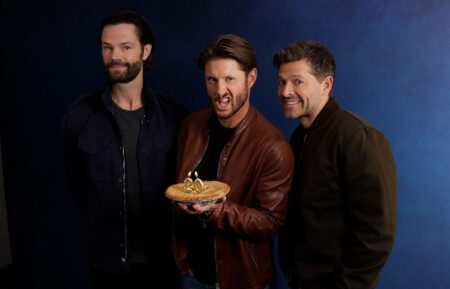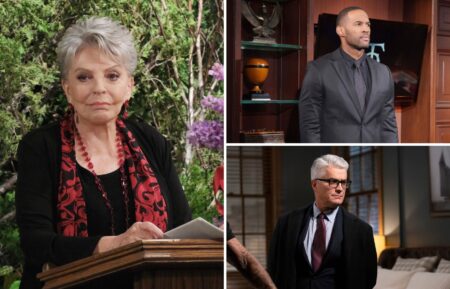The Urbanity of Evil: Bryan Fuller and Hannibal’s Rogues Gallery
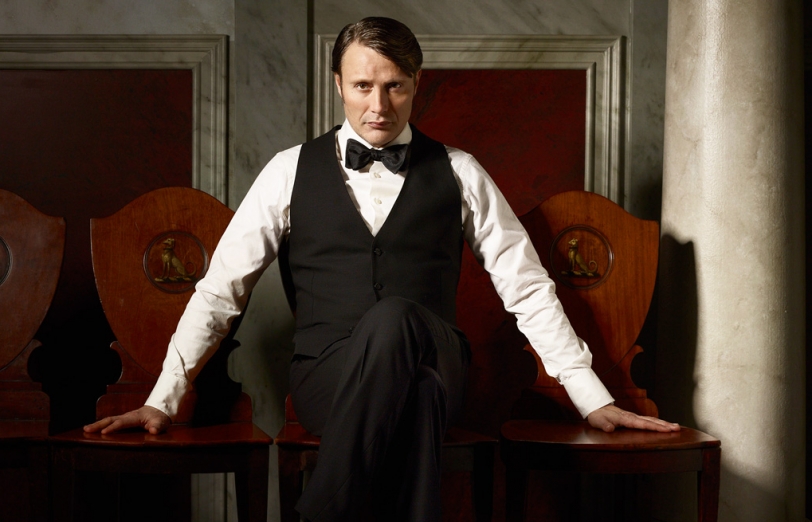
The first two seasons of Hannibal, for the most part, kept its title character shrouded in darkness. Quite literally: In nearly every scene, Hannibal Lecter (Mads Mikkelsen) is only half lit, one side lost in shadow. We know he’s a cannibal who despises the rude, a natty dresser with an Eastern European accent, the psychiatrist to Will Graham (Hugh Dancy); otherwise, he’s a cipher.
This is not a complaint. Pre-exposure Hannibal demands to be treated as a mystery. As played by Mikkelsen, Lecter is Lucifer as we have never seen him: urbane, considerate, even romantic, a serial people-eater by whom viewers are nevertheless entranced. Even as he commits the unforgivable sin of allowing Will Graham’s brain to fry from encephalitis, there’s something compelling about him, something that draws you closer than you’d like. “There are people who are attracted to someone like Hannibal Lecter and repelled at the same time,” executive producer Bryan Fuller says. “It’s that careful balance of, ‘I’m close to the fire, but when do I actually get burned?'”
The kind of villain Hannibal represents is, in some ways, more terror-inducing than any monster under the bed. “One of my favorite horror movies is Rosemary’s Baby,” Fuller explains. “She goes to the doctors, these people who are so trusted—we depend on them to be honest and forthright with us—and the suggestion that their motives may not be pure is so unnerving. With the monster under the bed, at least you know what its motives are.”
The Hannibal seen in the beginning of Season 3 is still all of the above, suave and scarily smart. He is also brazenly chowing his way through professori Florentine, in front of semi-coerced “companion” Bedelia Du Maurier (Gillian Anderson), and with the gusto of someone who has gotten away with many, many murders. Therein lies the difference: “Hannibal Lecter, once fully exposed, has no reason to hide his brutality,” says Fuller, for whom the fun truly begins this season. “The first seven episodes are what I’ve always wanted to do with the show,” he adds. “We finally have Hannibal as the antihero he’s always been. We have the opportunity to go Grand Guignol.”
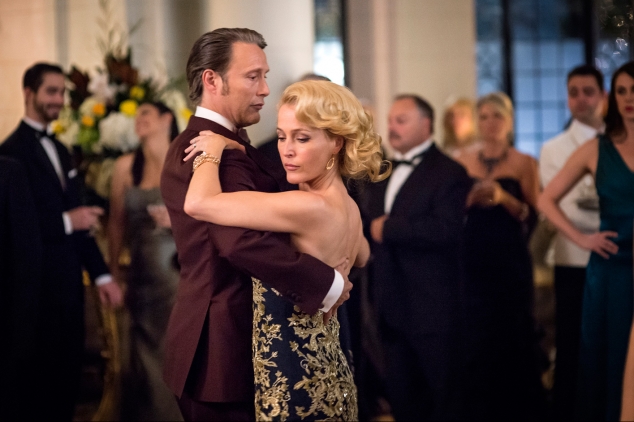
That gives Fuller a little more leeway to give in to his instincts towards dark—some might argue pitch-black—humor. There are triple entendres about how certain kinds of flesh should taste, jokes about who killed whom. “Some of Mads’ reactions to things are so impish,” Fuller says with obvious glee. “He’s got such a twinkle in his eye.”
But even a monster can suffer a broken heart—or at least a reasonable facsimile thereof. “With somebody like Hannibal Lecter, there is a curiosity about emotions,” says Fuller. “He’s not afraid to try them on and see if they fit.” In light of his “grief” over Will Graham selling him out to the FBI, one could say the first few episodes of the new season are Hannibal attempting to eat his feelings.
As in a video game with just one boss, a show with only one villain would quickly become tiresome. Fuller and his writers are experts at crafting baddies whole cloth in addition to drawing from Thomas Harris’ oeuvre:
There’s the fleshed-out Minnesota Shrike, whose case began the Breaking of Will Graham.
There’s Eddie Izzard’s chillingly funny Dr. Abel Gideon, convinced he’d committed the crimes actually perpetrated by Hannibal Lecter.
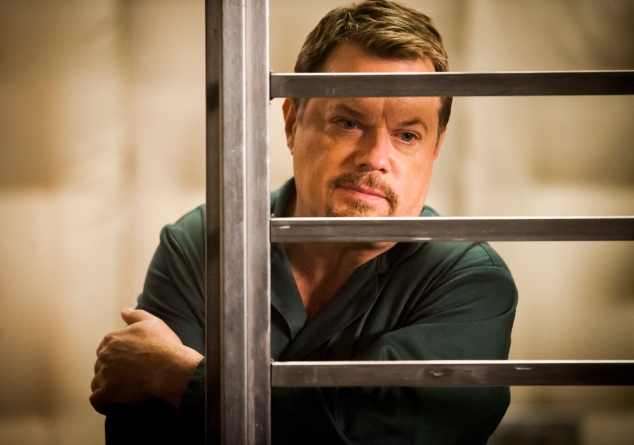
There’s the from-the-canon Mason Verger, who literally drinks the tears of orphans. For Season 3, Joe Anderson has stepped in for Michael Pitt as the (almost cartoonishly) evil hog magnate, whom we’ll see for an arc that starts in Episode 4. Not that anyone’s likely to notice a difference, appearance-wise. That’s what happens when Hannibal decides you’re in need of some comeuppance, pumps you full of psychotropics, and then coaxes you into cutting your face off and feeding it to Will Graham’s dogs. “Everybody’s plotting [this season],” says Fuller. “Him above all.”
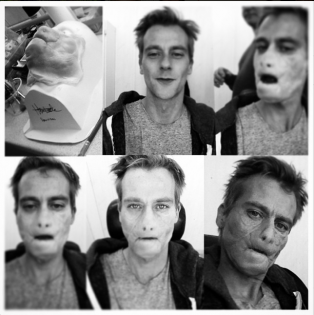
There’s the mysterious Neal Frank (Zachary Quinto), whom we’ll only see in two episodes: The premiere (as a dead body) and Episode 10, as a patient of Bedelia—the one who attacked her, and whom she subsequently killed, and whose murder Hannibal helped her cover up, tying the two inextricably together.
There’s Francis Dolarhyde, the Red Dragon, whose story will take up the latter half of Season 3. In Michael Mann‘s 1986 film adaptation of Thomas Harris’ novel Red Dragon, the serial killer (played by Tom Noonan) came off as more of an alien being than a person. In Brett Ratner’s 2006 version, Ralph Fiennes created a terrifying but oddly childlike monster. Fuller’s Red Dragon, as played by Richard Armitage, will be more than a bogeyman—he’s a representation of the struggle between sanity and insanity, rather than Good vs. Evil, which makes him all the more compelling. As with all good villains, Fuller and Co. have written Dolarhyde as though he were the protagonist in his own story.
“We’re not going to make it easy on you,” Fuller warns. “This man who falls for a blind woman and wants to take her to the zoo to enjoy the animals, who has arranged for her to actually touch them because she can’t see them—that is one of the most beautiful gestures I’ve seen in a romantic story. Yet it happens to be buried in the horror of a terrible, terrible killer of families. You see that this man is a contradiction; he is capable of beautiful and terrible things. And you can root against the monster, but you also need to root for the man, and hope he defeats the monster.” Fuller is careful, though, to point out that the fictional nature of the story makes this cognitive dissonance a little easier to handle.
A character walking that kind of tightrope necessitates the casting of an actor like Armitage. “It felt like it was Shakespearean in its storytelling, this battle for sanity,” Fuller says. “With Richard Armitage—who is a wonderfully trained actor, trained in theater—we found someone who could embrace the madness and generate great sympathy for what he is struggling with.” (For the record, Fuller pronounces the surname “Arm-i-tahj,” giving it the gravitas it probably deserves.)
Fuller rarely refers to his characters by their first names—it’s nearly always the Full Monty. “Hannibal Lecter.” “Will Graham.” “Bedelia Du Maurier.” “Alana Bloom.” (Caroline Dhavernas’ Alana will be back this season, incidentally, and Fuller promises he’s given her a story that does not place her in secondary position to a man.) It reflects the deep empathy and respect he has for them, something evident in the show’s writing. “We’re all looking for connection,” Fuller reasons. “They’re all asking, ‘How do I not feel alone in the universe?'” he says, “seeking out families to deal with their issues.”
Serial Killers: They’re Just Like Us.
Hannibal Season 3 premires Thursday, June 4 (10/9c, NBC).




